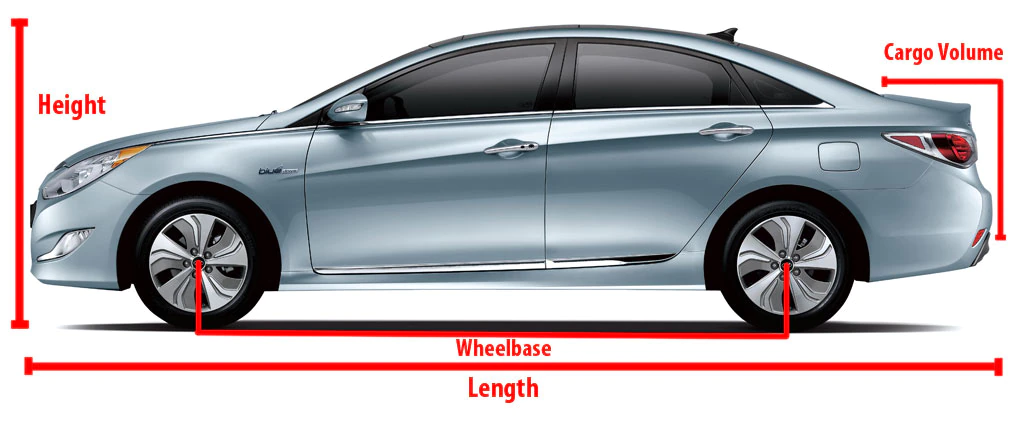Introduction
Embarking on the journey of purchasing a car? One of the critical factors influencing your decision is undoubtedly the size of the car. Whether it’s finding a suitable parking spot, ensuring driving safety, or just fitting into your garage, the average car length plays a pivotal role. In this guide, we delve into the intricacies of car dimensions, exploring why size matters and how it impacts your driving experience.
Unveiling the Numbers: Average Car Length
How Long is a Car?
Discover the fascinating world of car lengths! On average, a car spans around 14.7 feet, but the variations are vast. Different manufacturers and models boast varying sizes, with standard automobiles and trucks ranging from 10 to 18 feet. Unravel the specifics, from a compact midsize sedan at 14 feet to the petite Mini Cooper measuring approximately 10 feet. Explore the extremes with the Chevrolet Spark, the shortest at under 12 feet, and the luxurious Rolls-Royce Phantom, stretching around 20 feet.

Size Class Breakdown
- Mini Cars: 10.5 feet
- Small Car: 13.8 feet
- Small SUV: 14.4 feet
- Mid-sized Car: 14.8 feet
- Full-sized Car: 15.7 feet
- Small Pickup: 16.3 feet
- Large SUV: 16.7 feet
- Large Pickup: 18.4 feet
How Wide is a Car?
The average car width hovers around 5.8 feet, although aerodynamics and safety features contribute to variations. Explore the nuances, from the narrow Chevrolet Spark at 5.2 feet to the broad Tesla Model X, measuring 7.4 feet with mirrors folded. Delve into the impact of safety features like side airbags and lane departure sensors, which can influence a vehicle’s width, surpassing the dimensions of typical parking spaces.
Unraveling the Impact: How Length Affects a Car
Safety Considerations
Contrary to popular belief, the length of a car doesn’t necessarily dictate safety. Smaller cars have made significant strides in safety, thanks to advancements in engineering and materials. With each passing decade, cars have grown larger, influenced by factors such as locality, fuel efficiency, and customer preferences. We explore the safety dynamics and challenge the conventional notion that longer cars equate to better safety.

Locality and Fuel Efficiency
The locality in which you reside and the quest for fuel efficiency are key influencers in the car size you opt for. Larger cars may seem safer, and surprisingly, they are not significantly more expensive to insure. Uncover the intricacies of how your geographical location and fuel efficiency preferences sway your decision-making process.
Determining Your Car’s Dimensions
VIN Decoder
Learn simple methods for determining your car’s length, including using a VIN decoder. Type the Vehicle Identification Number into a VIN decoder online, and the results will provide accurate measurements.
Online Automobile Shops
Discover how online automobile shops can provide details about your vehicle’s measurements. Enter your license plate number to access precise measurements and additional information about your car.
Manual Measurement
Understand how aftermarket parts can alter your car’s length. Learn to measure your car by hand using a yardstick or tape measure for the most accurate results.
Interesting Tidbits About Average Car Length
Explore intriguing facts about average car length and width, such as the influence of cargo room and passenger space on a car’s length. Dive into the impact of safety features like airbags and lane departure sensors on a vehicle’s width.

Conclusion
As we navigate the labyrinth of car dimensions, we uncover the multifaceted aspects that influence your car-buying decisions. Size matters, but understanding the dynamics of average car length and width empowers you to make informed choices tailored to your needs.
you’ll also like this:
• Francisco Stanley Solis and the Legacy of Paco Stanley
• Romy Marion Byrne: Carving Her Unique Journey




